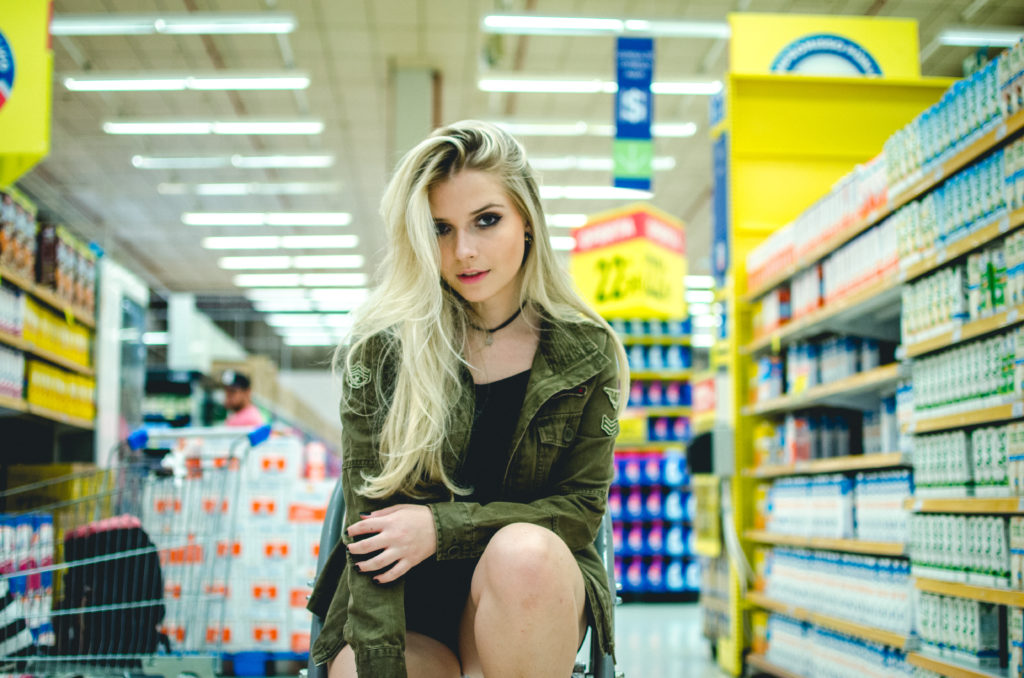Four reasons luxury brands are embracing influencers
While the mass market appeal of social media might seem at odds with the exclusive nature of high-end fashion, many luxury brands are starting to embrace influencer marketing.
In fact, it has become a core strategy for some of the world’s biggest luxury brands.
The ‘New Face of Luxury’ report – published by Fashion & Beauty Monitor in association with Econsultancy – delves into this topic, exploring why luxury is embracing this growing trend. To whet your appetite, here’s just four reasons.
1. Social media makes luxury accessible
There’s no doubt that social media has made luxury more accessible and appealing to everyday consumers. Now, shoppers aren’t required to enter a store to browse, meaning they can interact with and experience high-end brands on an entirely new level.
Of course, the open and large-scale nature of social means that brands runs the risk of appearing less exclusive – perhaps a reason why the industry has been reluctant to forge relationships with social influencers up until more recently.
Despite almost two-thirds of luxury brands being active within influencer marketing, 46% admit their influencer programme is a year or less than a year-old. Meanwhile, a further 28% say they have only used influencer marketing for two years or so.
Do you currently use influencer marketing as part of your marketing strategy?
That being said, many luxury brands are recognising that, if they are able to find the right balance, channels like Instagram and YouTube can be used to create content that reflects the lifestyle and interests of the core consumer. Which in turn, is also promoted by influencers.
2. Mid-tier influencers offer authenticity
Alongside a growing cynicism over celebrity endorsements, there’s been the realisation that the biggest social influence does not yield the best results. In fact, research suggests that as an influencer’s follower count increases, the rate of engagement with their followers decreases.
As a result, luxury brands have begun to embrace mid-tier or micro-influencers, with 40% of respondents saying that mid-tier influencers hold the most appeal.
This is because mid-tier influencers are dedicated to building active and engaged communities of followers who value their voice and trust their judgements on brands and products. In contrast, much like celebrities, top-tier influencers or those with mass audiences might have less control or come across as less authentic.
3. Enthusiasm for content-focused campaigns
So, how exactly are luxury brands collaborating with influencers?
Interestingly, it appears that a growing focus on content promotion and distribution is informing campaigns – over and above product launches. While 74% of luxury brands say that influencers play a “critical” or “very important” role in product launches, 71% say the same for content creation and promotion.
This shows that the real value of influencer marketing does not necessarily come in big brand campaigns – but subtle and original content. This tends to align with the opinions of influencers themselves, who typically feel that creative freedom and involvement is needed for the partnership to be worthwhile and successful for both parties.
4. Greater focus on ROI
With increasing investment, it’s naturally important for luxury brands to want to measure return. Unfortunately, this remains one of the biggest challenges, with the sheer amount of social and online data making it difficult to drill down to a single influencer, product or campaign.
That being said, it is an area of growing focus. 62% of luxury brands say that revenue generation is an important measure of success, while just 44% of non-luxury brands place such value on conversion figures. 79% of luxury brands also measure the success of influencer collaborations through web traffic generated, closely followed by the number of times content was shared.
Another positive is that social media channels are becoming increasingly trackable, with the use of affiliate programmes and conversion pixels, and with Instagram in particular introducing shoppable links.
In conclusion…
So, will luxury brands continue to invest in influencer marketing in future? With 66% of luxury brands saying that they expect their budget to increase “moderately” or “significantly” over the next 12 months, it appears so.
Despite some existing reservations about retaining exclusivity and aspiration, the bravest brands are proving this is possible to uphold, providing the collaboration is a good fit.






